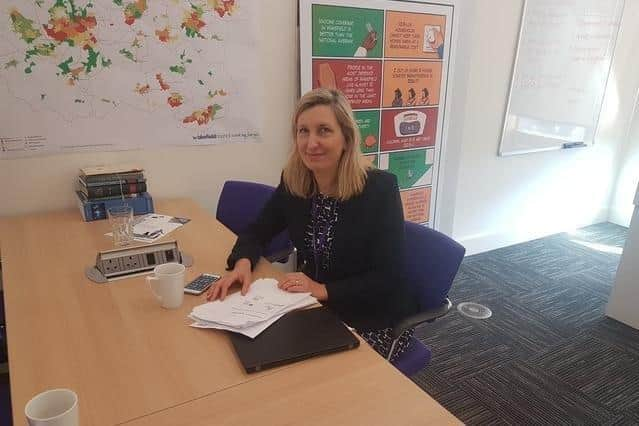Life expectancy inequality in Wakefield 'unacceptable', public health director says
and live on Freeview channel 276
The latest data available suggests the average local male can expect to live 78.3 years, while for females it's 81.9.
But there is a near nine-year gap between the area's wealthiest quarters and the least well-off.
Advertisement
Hide AdAdvertisement
Hide AdDirector of public health Anna Hartley said reducing the gap had to be a priority.


It comes as Wakefield's health authorities launch a new wellbeing strategy, to try to help local people lead happier and healthier lifestyles.
Ms Hartley said: "Life expectancy has increased but the issue we have is it's not uniform across the district.
"I think sometimes we can become complacent about that, but it's wrong. It's not acceptable that a baby born in one part of the district will have a shorter life span and less good health than a baby born in another part of the district.
Advertisement
Hide AdAdvertisement
Hide Ad"The reality is for some people born in Wakefield tomorrow, they won't have the best life they could have and that's really what we want to (address)."


Among the strategy's many aims is to help more pregnant women stop smoking, supporting schemes to reduce poverty and improving young children's dental health.
Tackling childhood obesity is also on the radar, having increased since the start of the Covid pandemic and the first lockdown when kids were stuck inside.
Ms Hartley added: "Childhood obesity is a system wide issue, and it’s not just one intervention that’s going to change it.
Advertisement
Hide AdAdvertisement
Hide Ad"If you were to take a positive from the fact it's gone up, it’s that it shows all the work that goes on in schools to support children to be healthy obviously works.
"We’ve basically had to leave families to get on with it by themselves in very difficult circumstances and often with reduced income, and what we’ve seen is an increase.
"We want to prevent it rather than treat it. There's a direct, linear relationship between families with the least income and children who are disproportionately overweight and a lot of that is to with access to healthy, cheap food."
Local Democracy Reporting Service